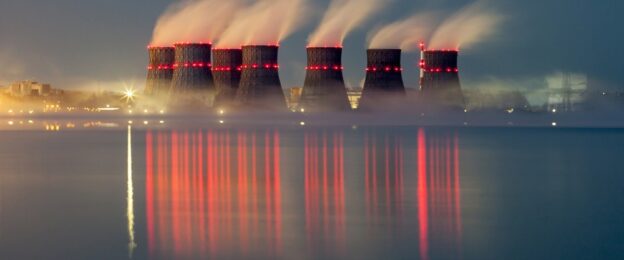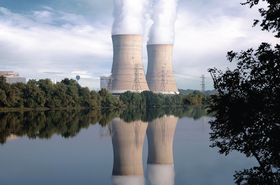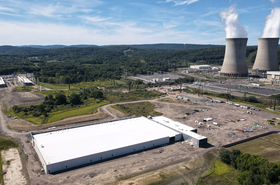Google is switching on nuclear power. Microsoft is reopening Three Mile Island via a long-term power purchase agreement. Amazon purchased a nuclear-powered data center from Talen.
These alone demonstrate how hungry the sector is for reliable, always-available power. In the data center industry, time equals money, and the clock is ticking.
With some grid connectivity schedules extending into the 2030s, data center operators are taking matters into their own hands.
There is some debate, with data centers increasingly using massive amounts of power, whether they should contribute more to national energy infrastructure.
Earlier this year, the UK National Grid’s chief executive declared that data center energy use would surge sixfold in 10 years. That seems a conservative estimate and rapid surges are similarly being seen across the Atlantic in the US and in other locations globally.
We’re not here to say data centers should pay more or less. What we are interested in, however, is why it’s taken us this long to have a healthy discussion on the topic.
After all, the squeeze on existing data center capacity has been increasing yearly. Energy providers know facilities need power, so national energy grids are investing as fast as they can.
But, as is often the case, the consumer has seemingly had enough and decided to act. Companies like Alphabet, Apple, Meta, and Amazon are done waiting. They are turning to whatever source they can find and seeking alternatives to traditional providers entirely.
Cometh the data cometh the power
Let’s get something straight. On-site energy generation is nothing new. Renewable power has been a staple of data center construction for years, with many operators deploying onsite solar farms.
What has changed, however, is that the world’s largest technology companies have such an urgent need for power consumption that they are willing to spend serious capital. We’re seeing billions of dollars committed to power generation on top of already ballooning construction and land purchase budgets.
The reasoning makes sense. If companies can secure planning permission and make the economics work, they eliminate one of the most significant pain points of new site construction and commissioning.
This approach provides complete control over energy security and pricing, eliminating the uncertainty of fluctuating prices.
It would also accelerate site delivery. Like any technology or improvement that speeds up data center construction or improves operational management, this would reduce time to revenue and increase return on investment.
Then there are the benefits of creating jobs and freeing up grid power for other uses.
But let’s not pretend there aren‘t sizeable hurdles.
Building and running a data center is different from running a power plant, no matter how small the site is. Safety is notoriously tricky, and the initial capital outlay is dramatically expensive when hundreds of megawatts are involved.
From an anti-competition perspective, this further consolidation of influence into a small pool of companies would prompt caution. Environmentally and societally, there are also considerable roadblocks to overcome.
Despite this complex dilemma, Big Tech has decided that pursuing this approach is worth their time, energy, and money.
Is Amazon, Google, or Microsoft Energy on the cards?
For futurists, these recent use cases and news stories pose an even more intriguing question: is this the first phase of something grander?
Are we entering an era where Big Tech, in 20 or 30 years, having invested heavily in data center power generation, begins to resell this energy to communities, businesses, and countries?
After all, these companies are fanatical about diversification, customer experience, and market expansion. Maybe by being customers of national grids around the world themselves, they could become frustrated enough to decide that this is the next sector to disrupt.
Only time will tell, and too much navel-gazing can be naive, but this debate does show just how significant our sector has become. Construction used to be about building things, while data centers were about storing data.
Both are now deeply engrained in national consciousnesses and seen as critical to the long-term success of a nation, its people, and the economy. They are political issues. They are national defense considerations. They matter.
What exciting times we all live in, and it will only get wilder.
https://www.datacenterdynamics.com/en/opinions/are-data-center-operators-energy-companies-in-the-making/







